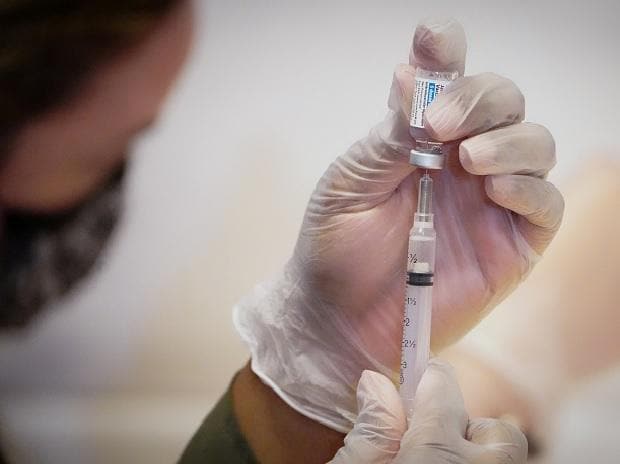The United States has so far allocated only 7.5 million doses of Covid vaccines to India, which is not enough, a top Indian-American Congressman said while urging the Biden Administration to do more.
Congressman Raja Krishnamoorthi said this after securing the support of 116 members of the Congress on his ongoing effort to expand US global vaccine aid programmes to India and other nations.
His statement has come on a day when the White House said it is eager to continue partnership with India in the fight against coronavirus and wants to provide assistance, including vaccines.
I'm once again urging President Biden and my colleagues in the Congress to come together and pass the NOVID Act into law to end this pandemic for good because, so long as outbreaks continue in any nation, the entire world faces the threat of new, vaccine-resistant variants, Krishnamoorthi said in a statement.
As we approach Indian Independence Day, we need to declare our independence from Covid by creating the global partnership necessary to produce and deliver the billions of vaccines necessary to truly bring this pandemic to an end, he said.
Meeting those goals will demand the continued cooperation of the world's leading democracies and producers of these life-saving vaccines, including the United States and India, Krishnamoorthi added.
Under the NOVID Act, which Congressman Raja Krishnamoorthi, Senators Jeff Merkley and Elizabeth Warren introduced with Congresswoman Pramila Jayapal, the US will establish the Pandemic Preparedness and Response Program (PanPReP) to oversee the global health response to the pandemic.
PanPReP will coordinate efforts between the Department of State, USAID, CDC, FDA, BARDA, Health Resources and Services Administration, DOD, the Peace Corps, and the Department of Labor.
The programme will also be responsible for coordinating the US Government response with international non-governmental organisations, development banks and civil society as well as foreign governments.
After the pandemic, the programme will shift to protect against future pandemics by coordinating a global disease surveillance network to identify and stop pandemic-potential pathogens before they spread uncontrollably.
The bill will authorise spending of USD 34 billionUSD 25 billion to scale manufacturing capacity and produce 8 billion vaccine doses; USD8.5 billion to cover the cost of end-to-end delivery of enough vaccines to immunize 60 per cent of the populations in 92 COVAX countries; and USD 500 million to establish a global disease surveillance network to protect against future pandemics.
(Only the headline and picture of this report may have been reworked by the Business Standard staff; the rest of the content is auto-generated from a syndicated feed.)
 Dear Reader,
Dear Reader,
Business Standard has always strived hard to provide up-to-date information and commentary on developments that are of interest to you and have wider political and economic implications for the country and the world. Your encouragement and constant feedback on how to improve our offering have only made our resolve and commitment to these ideals stronger. Even during these difficult times arising out of Covid-19, we continue to remain committed to keeping you informed and updated with credible news, authoritative views and incisive commentary on topical issues of relevance.
We, however, have a request.
As we battle the economic impact of the pandemic, we need your support even more, so that we can continue to offer you more quality content. Our subscription model has seen an encouraging response from many of you, who have subscribed to our online content. More subscription to our online content can only help us achieve the goals of offering you even better and more relevant content. We believe in free, fair and credible journalism. Your support through more subscriptions can help us practise the journalism to which we are committed.
Support quality journalism and subscribe to Business Standard.
Digital Editor

RECOMMENDED FOR YOU